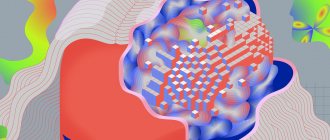Main factors of occurrence
The etiology of depressive neurosis is always psychogenic (stress due to external or internal factors), and contains the causes of neurosis and depression, as well as part of their symptoms, which often complicates diagnosis in the early stages of development. In addition, the clinical picture of the disorder is complemented by somato-vegetative symptoms, which further complicates diagnosis and differentiation with other pathologies.
Neurotic depression can occur in groups of people with directly opposite psychotypes. The first of them is people who are confident in their beliefs, distinguished by categorical statements, setting new goals and achieving them. At the same time, they hide their inner world from others. A large place in it is given to concerns and worries about personal leadership and the assessment of their actions by those around them.
The second group of people susceptible to neurotic depression includes individuals who poorly adapt to various life complications and even natural changes. They are characterized by low self-esteem, inability to make decisions, daydreaming in the absence of action.
Factors that can cause neurotic disorders such as depression in both groups can be long-term psychotraumatic circumstances: personal failures in professional activities, failures in personal life, social relationships. Among these factors, the most influential are:
- constant suppression of real feelings and emotions, hiding true feelings from others;
- inability to distance yourself from a situation, not to get involved, not to take it to heart;
- an overly heightened sense of responsibility and desire to be the best;
- conflict between the goal and the means to achieve it;
- emotional hunger - the absence of like-minded people, loved ones, friends, relatives, the inability to do what you love, to communicate with the people you want.
The accumulation of these unfavorable factors gives a person the impression that it is impossible to correct the situation; he does not even try to look for ways to solve problems, directing all efforts to hiding the internal conflict. As a result, the nervous system cannot withstand such stress, and the first visible sign of depressive neurosis appears - autonomic-somatic disorders.
Treatment
In some people, as well as in children and adolescents, the disease most often occurs in a latent form. In this case, it is difficult to recognize neurotic depression; treatment should be prescribed only after a preliminary full examination and consultation with a psychiatrist. It is important to be able to distinguish the disease from other disorders with similar manifestations.
Therapy includes:
Psychotherapeutic techniques
A conversation with a psychotherapist helps to identify the cause of the disease. A person learns to notice positive events and moments in life. Sessions provide an opportunity to express deep-seated experiences and hidden emotions, and teach how to mobilize internal resources to solve problems.
Clinical picture, symptoms
Depressive neurosis in the manifestations of vegetative-somatic disorders practically repeats the symptoms of neurosis and depression in the initial stages of development. Against the background of a low mood, but while maintaining the usual ability to work for the sick person, at the initial stage of neurotic depression the following may be observed:
- decreased vital activity, apathy towards all areas of social relations;
- general lethargy, decreased speech, facial expression, motor, and mental activity;
- sleep disorders - long periods of falling asleep, frequent awakenings with anxious feelings, insomnia;
- weakness and weakness in the morning, general fatigue during the day;
- imbalance of the autonomic nervous system, expressed in cardiovascular manifestations - tachycardia, palpitations, fluctuations in blood pressure with the development of persistent hypotension, etc.;
- decreased appetite;
- dyspeptic disorders;
- disorders of the gastrointestinal tract, spastic colitis;
- periodic dizziness;
- turning to work from family and interpersonal troubles.
Stressful situations:
- dramatic experiences (loss of a lover, permanent activity, social position);
- conflict situation in the family sphere;
- problems related to the profession;
- economic problems;
- collapse of plans, expectations, aspirations and desires;
- intrapersonal conflict;
- complex, intractable situations (caring for a seriously ill relative);
- prolonged influence of low-intensity, but stable and “monotonous” conditions (disagreement, hostile environment in a team or family, lack of ability to completely relax).
Endogenous depression is an emotional disorder triggered by changes in the levels of hormones and neurotransmitters. It tends to be expressed in the form of a decrease in positive mood, inhibition of mental operations and a slowdown in motor activity.
Depression of an endogenous nature belongs to the internal biological origin of the disease. It is characterized by a constant course with periodic exacerbations. In these cases, hereditary location plays an important role. Consequently, cases of depression in the patient's family can be identified, but they usually occur on their own without any clear connection with external events. Sometimes such a connection is made with the psychological trauma of the patient or his family, but mostly this is the result of “psychologization,” that is, an attempt to find a more or less understandable explanation for the cause of depression. This disease does not depend on what events and actions occur in the individual’s life. Epidemiology is approximately similar by gender and does not depend on the degree of creation of social and financial wealth.
Thus, we can draw the following conclusion that neurotic depression is one of the variants of psychogenic disorders. The study of the dynamics of neurotic depression gives grounds to assert that it is a stage of neurotic development; it may be preceded by depressive neurosis, followed by a stage of characterological disorders. Endogenous depression, on the contrary, appears in the absence of external causes and is not dependent on incidents or current events in the daily life of the individual. This depression can occur against the background of other diseases, such as bipolar disorder or schizophrenia.
Difference between depressive neurosis and other neurotic disorders
First, let's find out what the differences between depression and neurosis are. Neurosis is a general concept for a whole group of psychogenic disorders, the appearance of which is caused by regular exposure to external stress factors. In the early stages of the disease, it is enough to eliminate these factors or change your attitude towards them for recovery to occur.
Depression is an affective disorder, that is, a mood disorder, which is characterized by a lack of ability to enjoy the positive phenomena of life, an unreasonable depressed state for a long time, a significant loss of strength and extreme fatigue. With depression, external factors are basically just a catalyst that triggers a serious illness formed by endogenous causes, including hereditary ones. The combination of a depressive and neurotic clinical picture is characteristic of depressive neurosis, but in a significantly softened version.
Despite apathy and a decrease in mental activity, the patient remains able to work, and in some circumstances is even absorbed in work; general lethargy has virtually no effect on the results of work. Apathy extends more to relationships in society - there is no desire to communicate or attend crowded meetings. The skills of habitual socialization themselves do not disappear, interest in them simply dries up.
There is no total depression; patients diagnosed with depressive neurosis do not lose self-control and are capable of adequate communication and assessment of what is happening. They do not have the painful feeling of a lack of feelings and a complete disappearance of emotions and interest in life. The sleep disturbances characteristic of ordinary depression in the form of early awakenings with the inability to resume sleep again are absent or only rarely appear. During the day, the condition may worsen slightly in the evening, while with a purely affective depressive disorder, on the contrary, it becomes a little easier in the evening. The presence of somato-vegetative disorders in this disease forces one to turn to general practitioners (most often therapists, neurologists) who treat common diseases, who can prescribe symptomatic treatment that does not correct the situation and prolongs the course of the disease.
As a differentiation from similar disorders, morning fatigue, characteristic of asthenic neurosis, is not accompanied by feelings of melancholy, restlessness and anxiety, as with depression, just as there is no extreme fixation on symptoms and the search for imaginary diseases, as is the case with hypochondria.
In general, the symptoms are much milder than the clinical picture of classical depression, in which the future is hopeless. Neurotic depression allows you to plan, see prospects and strive to achieve them, while bracketing the negativity of the existing unfavorable state of affairs. All these features and subtle differences can only be noticed by an experienced psychotherapist in order to differentiate depressive neurosis from other types of neurotic and affective disorders.
Neurotic depression and its types
Experts identify several forms of the disease: bipolar, unipolar, reactive, endogenous, situational.
The endogenous form is characterized by a long course; the monopolar form is characterized by a single emotional tone, without ups and downs of mood; the bipolar form is characterized by mood swings and a manic state.
Whatever diagnosis the doctor makes, the prognosis for complete healing is positive, and recovery can occur in a short time. Of course, provided that the patient adheres to all the doctor’s recommendations.
Diagnosis and treatment of depressive neurosis in
The Neopsi Mental Health Center employs qualified doctors with extensive practical and scientific experience in the study and treatment of mental disorders. An accurately established diagnosis allows you to develop an individual treatment plan, taking into account all the features of the patient’s development of depressive neurosis and the presence of other diseases.
Treatment is carried out comprehensively, using modern methods of psychotherapy, pharmacotherapy, and physiotherapy, since the most advanced methods of psychopharmacotherapy without psychotherapeutic influence do not provide a sustainable effect. The main task of the psychotherapist is to identify during the conversation, and then change the patient’s attitude towards the traumatic situation that became the catalyst for the disease, to form a new view of it. Whenever possible, the Center’s doctors strive to limit the prescription of medications, using the latest and traditional methods of psychotherapeutic influence, which may include individual existential and analytical therapy, hypnosis, auto-training, cognitive-behavioral training, etc.
Various approaches are used depending on the individual characteristics of the patient:
- suggestive using suggestion (including Ericksonian and traditional hypnotherapy);
- psychodynamic (classical psychoanalysis based on the theory of the unconscious);
- rational (explanation and logical persuasion);
- existential (understanding your life through an internal search - knowledge of your individuality, true needs and meaning to liberation from the problem), etc.
Comprehensive and professional treatment of depressive neuroses in our Center guarantees a quick and complete recovery of patients. Relieve the burden of unresolved problems and regain a happy life with the help of the Neopsy Mental Health Center. Make an appointment by calling the specified phone number, or through the website services.
What treatment is used?
Psychotherapy is offered to people suffering from neurosis.
The symptoms of neurosis affect daily life, which is greatly impaired. And as soon as the quality of life decreases, it is worth seeking the help of a psychotherapist. In a safe therapeutic space, the patient has the opportunity to express his feelings, dominant obsessive thoughts, which creates the opportunity to distance himself from internal conflict, become aware of its origins, and also to change beliefs, thinking and, therefore, also feelings.
Drug treatment also brings results, the inclusion of which is decided by a psychiatrist. According to doctors, patients often say after treatment: “I’m breathing again!” You should not ignore the symptoms of neurosis, because it worsens the quality of life.
Differences between dysthymia and ordinary depression
- Dysthymia acquires a protracted, chronic course; a depressive episode has the character of a phase - that is, it ends sooner or later.
- Dysthymia does not reach severe symptoms and can occur secretly, which is why patients rarely seek help; the depressive state can intensify to a severe state (with psychosis, suicidal thoughts), patients often come to the attention of psychiatrists and psychotherapists.
- The mechanism of development of dysthymia is associated with changes in physiological processes in the central nervous system (balance of excitation and inhibition, exchange of neurotransmitters, etc.).
- The peculiarity of the disorder is that patients rarely seek help from doctors, because they do not believe that something can be corrected and the symptoms do not reach painful severity.
- For patients with dysthymia, it is common to turn to specialists other than doctors: psychologists, priests, the so-called. healers, “sorcerers”, “bioenergy therapists”, etc. Most often, the initiators of seeking help from a doctor are the patient’s relatives, and the initiators of “non-medical” figures are the patients themselves.
Distinctive features of the disease
Depressive neurosis is most often diagnosed in purposeful individuals who tend to experience everything within themselves and do not know how to share problems with others. In addition, such a disorder occurs in men and women with low self-esteem, as well as in those who find it difficult to make any major life changes.
People suffering from the disease often confuse it with depression due to some similarity in symptoms. But in fact, these are completely different pathologies:
- Depression, in contrast to depressive neurosis, is characterized by a feeling of complete hopelessness, depression, up to the appearance of suicidal thoughts.
- If with neurosis a person is able to conduct his professional activities, then with depression he almost completely loses his ability to work.
- With neurosis, the patient remains interested in life and his favorite hobbies/entertainments, while in a state of depression, even his most favorite things do not cause joy.
- Neurotic disorder is usually triggered by life situations. If we talk about a depressive state, it is often caused by severe internal experiences.
But, of course, despite the milder clinical picture, it is necessary to treat depressive neurosis, and therapy should be started as early as possible.
Predictions and prevention of relapses
The first step on the path to recovery is to seek moral support from friends and to a specialist for medical help.
The disorder is easily corrected, and with proper treatment the patient can forget about the disease forever. To prevent relapses, it is equally important to adhere to the rules for preventing this disease:
- Make it a habit to exercise regularly.
- Listen to more positive music.
- Forget about bad habits such as smoking and alcohol abuse.
- Pay attention to your social circle: it is important to minimize negative emotions and pessimism.
- Get plenty of rest. Do not forget that a person should sleep about 6–7 hours a day.
Don't hesitate to seek professional help if you see the situation getting out of control. Just a few sessions with a specialist will help you avoid serious complications. At the Leto mental health center, highly qualified psychotherapists provide consultations who will help you get rid of your problem and fill your life with optimism.
Tired of being constantly depressed? Do you want to enjoy life again? Then we are waiting for you in our clinic! To call a doctor or make an appointment, call 8(969)060-93-93.










